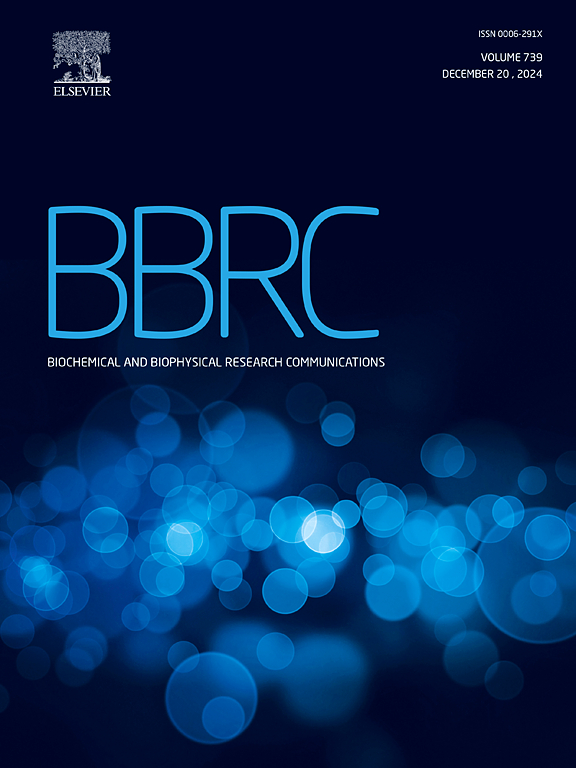Interleukin-27 deletion has neuroprotective effects in the acute ischemic stage of cerebral infarction
IF 2.5
3区 生物学
Q3 BIOCHEMISTRY & MOLECULAR BIOLOGY
Biochemical and biophysical research communications
Pub Date : 2025-03-03
DOI:10.1016/j.bbrc.2025.151581
引用次数: 0
Abstract
Post-ischemic inflammation is an essential step in the progression of brain ischemia-reperfusion injury. Cytokines such as interleukins 17 and 23 (IL-17, IL-23) have been involved in stroke. IL-27 is a member of the IL-12 family that consists of IL-27p28 and Epstein-Barr virus-induced gene 3 (EBI3), having anti-inflammatory properties and regulating T cell polarization and cytokine production. However, whether IL-27 plays an important role in the acute stage of brain ischemia remains unclear. In the acute stage, IL-27 was upregulated after intracerebral ischemia in wild-type mice while mice lacking IL-27 showed decreased infarction area and suppressed inflammatory cytokines. These findings suggest that IL-27 may be involved in cerebral ischemia and could be a potential therapeutic target for mitigating inflammation and avoiding increasing the initial damage in cerebral ischemia.
求助全文
约1分钟内获得全文
求助全文
来源期刊
CiteScore
6.10
自引率
0.00%
发文量
1400
审稿时长
14 days
期刊介绍:
Biochemical and Biophysical Research Communications is the premier international journal devoted to the very rapid dissemination of timely and significant experimental results in diverse fields of biological research. The development of the "Breakthroughs and Views" section brings the minireview format to the journal, and issues often contain collections of special interest manuscripts. BBRC is published weekly (52 issues/year).Research Areas now include: Biochemistry; biophysics; cell biology; developmental biology; immunology
; molecular biology; neurobiology; plant biology and proteomics

 求助内容:
求助内容: 应助结果提醒方式:
应助结果提醒方式:


